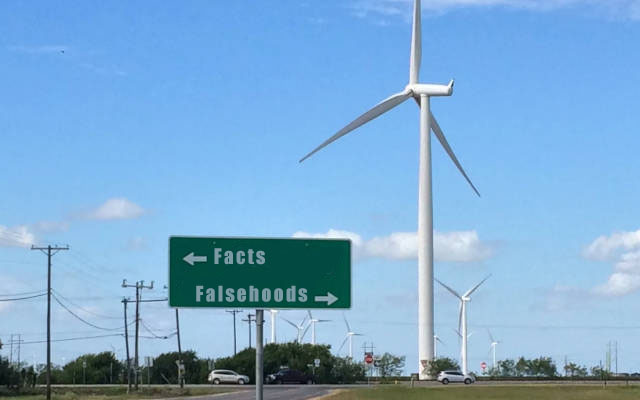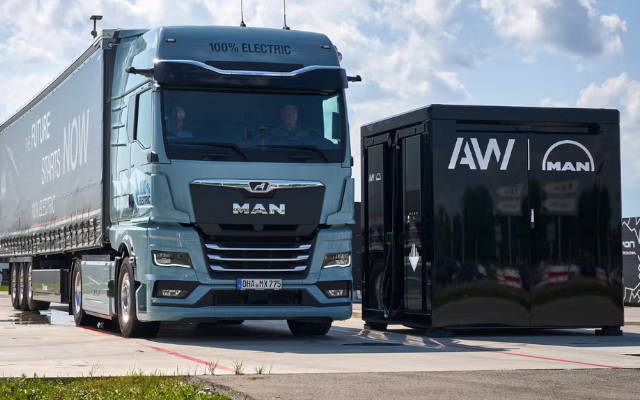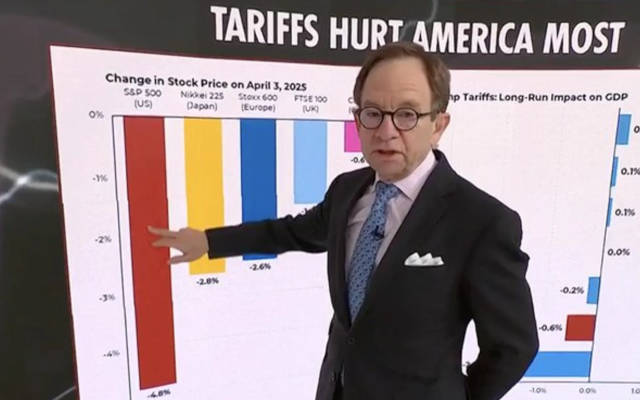 EDITOR'S PICK
EDITOR'S PICK
UN Chief Guterres: "Fossil Fuels Running Out of Road"
25 Jul 2025 | Synopsis
 UN Secretary-General Antonio Guterres declared that renewables have reached a "turning point": over 90% of new projects are now cheaper than fossil fuels - solar ~41% cheaper, wind ~53% cheaper. In 2024, investment in clean energy hit $2 trillion, $800 billion more than fossil fuel investment. Guterres warned that fossil fuels "are running out of road," urging global leaders and tech firms to shift rapidly to clean power.
UN Secretary-General Antonio Guterres declared that renewables have reached a "turning point": over 90% of new projects are now cheaper than fossil fuels - solar ~41% cheaper, wind ~53% cheaper. In 2024, investment in clean energy hit $2 trillion, $800 billion more than fossil fuel investment. Guterres warned that fossil fuels "are running out of road," urging global leaders and tech firms to shift rapidly to clean power.Fact Check: Renewables Not to Blame for Texas Power Price Spike
25 Jul 2025 | Synopsis
 Fact Check: Against WSJ's claim, renewables did not drive the rise in Texas electricity bills. Expert analysis shows that inflation, natural gas price surges, grid upgrade costs, and post‑freeze recovery efforts are the true drivers of higher rates. Meanwhile, clean energy continues to offer long‑term affordability. Experts warn that scaling back solar and wind could raise, not reduce, future energy costs.
Fact Check: Against WSJ's claim, renewables did not drive the rise in Texas electricity bills. Expert analysis shows that inflation, natural gas price surges, grid upgrade costs, and post‑freeze recovery efforts are the true drivers of higher rates. Meanwhile, clean energy continues to offer long‑term affordability. Experts warn that scaling back solar and wind could raise, not reduce, future energy costs.Are These Charging Cubes the Answer?
25 Jul 2025 | Synopsis
 MAN Truck & Bus has launched the Smart Charging Cube - a modular battery energy storage system ranging from 500 to 1,100 kWh, with up to four fast-charge ports per unit (400 kW), extendable to 1 MW via external charging, ideal for electric truck depots, construction sites, or grid-limited areas. It supports solar input, peak shaving, bidirectional power flow, and enables rapid deployment without major infrastructure
MAN Truck & Bus has launched the Smart Charging Cube - a modular battery energy storage system ranging from 500 to 1,100 kWh, with up to four fast-charge ports per unit (400 kW), extendable to 1 MW via external charging, ideal for electric truck depots, construction sites, or grid-limited areas. It supports solar input, peak shaving, bidirectional power flow, and enables rapid deployment without major infrastructureWho Really Pays for the Trump-Japan Tariff Deal? American EV Buyers Might
24 Jul 2025 | Synopsis
 American consumers - especially EV buyers - are the real payers in Trump's U.S.-Japan tariff deal, warns economist Steve Rattner. Tariffs on Japanese autos don't hurt Japan; they're passed through higher prices at U.S. dealerships. Even American-made EVs using Japanese parts may see cost increases. Though the deal includes Japanese investments, there's no guarantee of job gains. Increased EV prices could slow clean-tech adoption, underscoring the hidden costs of trade policy.
American consumers - especially EV buyers - are the real payers in Trump's U.S.-Japan tariff deal, warns economist Steve Rattner. Tariffs on Japanese autos don't hurt Japan; they're passed through higher prices at U.S. dealerships. Even American-made EVs using Japanese parts may see cost increases. Though the deal includes Japanese investments, there's no guarantee of job gains. Increased EV prices could slow clean-tech adoption, underscoring the hidden costs of trade policy.Dust Off : The Unexpected Side Effect Of Having More And More EVs On The Road
24 Jul 2025 | Synopsis
 Electric vehicles reduce not only exhaust emissions but also brake dust - a major urban pollutant. A recent EIT Urban Mobility study in London, Milan, and Barcelona found EVs cut brake-dust pollution by 83% due to regenerative braking, significantly improving air quality. While heavier EVs slightly increase tire wear, non-exhaust emissions (brake, tire, road dust) still drop by ~38% overall. Better health, cleaner cities - a win for electrification.
Electric vehicles reduce not only exhaust emissions but also brake dust - a major urban pollutant. A recent EIT Urban Mobility study in London, Milan, and Barcelona found EVs cut brake-dust pollution by 83% due to regenerative braking, significantly improving air quality. While heavier EVs slightly increase tire wear, non-exhaust emissions (brake, tire, road dust) still drop by ~38% overall. Better health, cleaner cities - a win for electrification.
 Si Exclusive
Si Exclusive
Hydrogen's Flight Path: Fuel Cells, Turbines, and the Economics of Clean Aviation
10 Oct 2025 |  Aviation is shifting from Jet A to four fuel systems: electricity, hydrogen (fuel cell and combustion), SAF, and petroleum. Fuel cells suit short-haul aircraft; hydrogen combustion may power long-range jets. SAF bridges legacy fleets. Hydrogen costs - $5-$7/kg today, possibly $2/kg by 2040 - impact ticket prices and infrastructure decisions. Airport authorities, airlines, and governments will share deployment costs. Each fuel has distinct environmental pros and cons shaping aviation's net-zero future.
Aviation is shifting from Jet A to four fuel systems: electricity, hydrogen (fuel cell and combustion), SAF, and petroleum. Fuel cells suit short-haul aircraft; hydrogen combustion may power long-range jets. SAF bridges legacy fleets. Hydrogen costs - $5-$7/kg today, possibly $2/kg by 2040 - impact ticket prices and infrastructure decisions. Airport authorities, airlines, and governments will share deployment costs. Each fuel has distinct environmental pros and cons shaping aviation's net-zero future.
 10 Oct 2025 23:43:13 UTC |
RECENT PODCASTS
BYD Soars - Cheaper Tesla Models - The Bolt is Back - Rivian
SEARCH RSSTREAM
 53 New Postings In Past 24 Hours
53 New Postings In Past 24 Hours
Category:finance
Region:NoAmerica
Date:10 Oct 2025
Category:policy
Region:NoAmerica
Date:10 Oct 2025
Category:mobility
Region:AsiaPacific
Date:10 Oct 2025
Category:mobility
Region:AsiaPacific
Date:10 Oct 2025
Category:finance
Region:NoAmerica
Date:10 Oct 2025
Category:finance
Region:IndoAsia
Date:10 Oct 2025
Category:energy
Region:Global
Date:10 Oct 2025
Category:energy
Region:NoAmerica
Date:10 Oct 2025
Category:finance
Region:NoAmerica
Date:10 Oct 2025
Category:finance
Region:Global
Date:10 Oct 2025